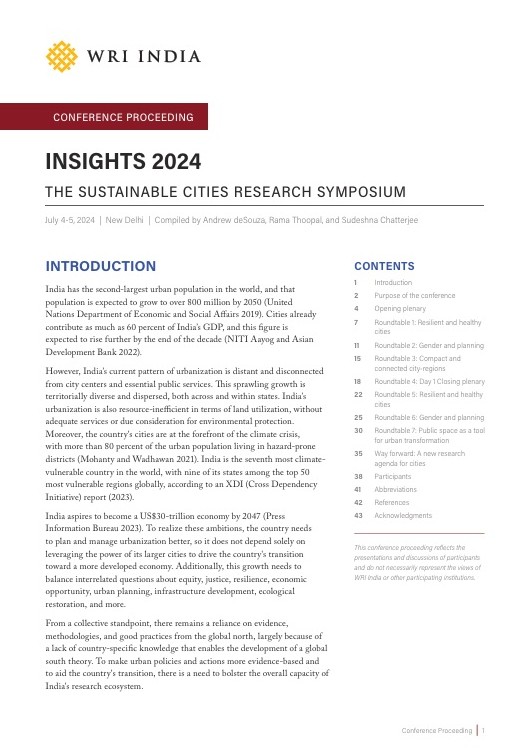Building Resilience with Nature-Based Solutions
by -One of the key strategies for the success of the Paris Agreement is the idea of nature based solutions to climate change. Protecting ecosystems and the beneficial services they provide is one of the most immediate and effective solutions for both mitigation and adapting to the impacts of climate change. Over the past decade, a range of nature-based approaches to enhancing resilience have emerged from multiple disciplines. These approaches include ecosystem-based adaptation, green and blue infrastructure, and ecological engineering.
India’s Climate Commitments
As a signatory to the Paris Agreement, India is committed to work towards a low-carbon emissions pathway. India’s Nationally Determined Contributions (NDCs) under the Paris Agreement have focused on adaptation efforts that are intricately linked to the fundamental principles of nature-based solutions and long-standing conservation ethics ingrained in the culture of India.
These include a commitment to enhance carbon sinks through sustainably managed forests; optimise water use efficiency; create ecologically sustainable climate resilient agricultural production systems; and safeguard the Himalayan glaciers and mountain ecosystems. With its focus on sustainable forest management, afforestation, and regulating diversion of forest land for non-forest purposes, India plans to increase its carbon stock. The proposal to create an additional carbon sink of 2.5 to 3 billion tonnes of CO2 equivalent through additional forest and tree cover by 2030 speaks to the opportunities offered by nature-based solutions. In addition, these solutions can also help improve the use of open space, specifically in urban areas, and deliver a wide range of non-market, community-level resilience dividends.
Nature-Based Solutions in India
However, in the Indian context, specific areas which fall in the ambit of nature-based solutions, like the maintenance of the coastal ecosystem through mangrove conservation that will reduce the impact of increased storm surges and sea level rise; the protection of natural wetlands and the introduction of constructed wetlands in appropriate areas that will improve water quality and drainage, and reduce pollution and flood risk; climate resilient agriculture through careful soil and water management, needs adequate attention.
Nature-based solutions would be more effective and efficient if it complements engineering solutions. These actions call for a methodical and scientific assessment of a good fit for nature-based solutions in a given context by the scientific community; a coordinated and mainstreamed effort to integrate nature-based solutions with different policies and practices that span across different ecosystems and departmental jurisdictions from both state and non-state actors; predictable and adequate financing and investments from the public and private sectors; and above all, a sustained effort to involve affected communities in the decision making process through consultations and shared dialogue, recognising that these communities often have greater insight into what works in their specific environments.
The opportunities for mainstreaming nature-based solutions into climate change mitigation and adaptation at Indian context is sizeable and the associated actions would help India achieve not only its NDCs but also contribute towards fulfilling the UN’s Sustainable Development Goals.



Add new comment